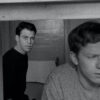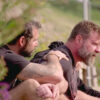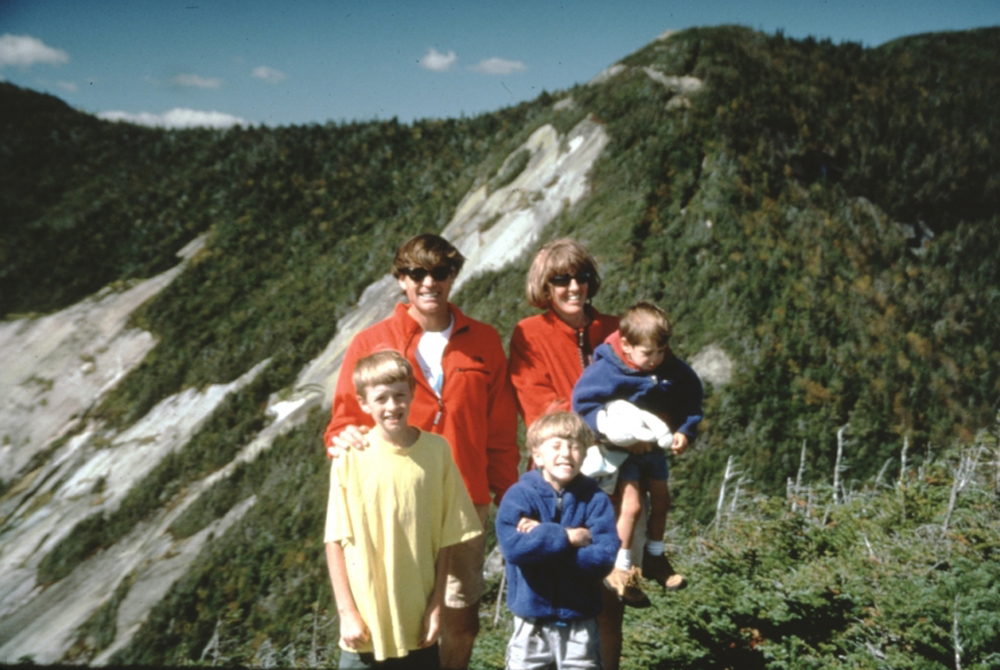“This isn’t going to be very fun, Max,” the filmmaker Mike Brown tells Max Lowe about the footage he’s about to see of his father Alex on a 1999 hiking expedition up the Shishapangma Mountain in Tibet in “Torn,” footage that may not specifically depict the grizzly details of how he died in an avalanche along with cameraman David Bridges, but gives the specifics of the day in a way that few families are ever privy to when the hike was chronicled for posterity as many of Lowe’s were when he was revered as one of the greatest mountain climbers in the world. As the filmmaker of “Torn,” Max doesn’t flinch, prepared as he’ll ever be to see it, but as he mentions well before in convening his two brothers Sam and Isaac, his mother Jenni and his father’s climbing partner Conrad Anker to reflect on the impact that Alex’s death had on all of them, “I definitely feel conflicted about bringing everything back to the surface for you guys.”
Wisely, Lowe doesn’t overwhelm “Torn” with his presence, declining first-person narration or any extraneous screen time as he learns more about his father who passed away when he was 10, but the film is built around his unique perspective as the eldest of the Lowe brothers, the only one old enough to be conscious of Alex as a parent and the only one to understand his death, which may be the only appropriate place for anyone to tell the story of his unique family. Although catching his mom baking an apple pie, the Lowes were anything but the typical American family, with Alex the adventurer spending weeks at a time away from home scaling some of the world’s highest summits while Jenni raised their three sons as she pursued her own career as an artist and once tragedy struck, the family arrangement only grew more complicated with Conrad, who survived the avalanche, essentially taking Alex’s place.
Although Alex is given his due in the wealth of archival material that he left behind, he largely exists in “Torn” in purposefully broad strokes as he would be remembered by the family that only saw him so often, or from an even greater distance in the case of his younger sons, opening up a fascinating avenue of inquiry for anyone who’s ever watched one of these extraordinary climbing docs and wondered about what toll it takes on their loved ones who keep their feet on the ground. As Lowe learns from interviews, most climbers aren’t known to have families when having attachments keeps them from climbing, making Alex as unique in his personal life as he was in his professional sport and while the film shows that he was asked about this quite a bit while he was alive, he is said to have thought about it even more in private, adding to the pressure he felt on his arduous treks.
Upon Alex’s death, it’s clear that weight shifted to his loved ones, who may feel the same sense of absence that they did while he was alive, only with the devastating knowledge he won’t be coming back and as Lowe interviews each member of his family individually, the difference in their perspective based on age and proximity to Alex is captivating. It’s difficult to capture free-floating unease the way Lowe does — and perhaps as only he could in this particular situation — when two decades on, there isn’t closure and quite powerfully, the film makes a stylistic break away from its more traditional talking-head interview style at one point to show that its director certainly hasn’t come to any conclusions of his own. In the best way possible, it feels as if Lowe is making the film for himself first as well as for his family to process what they’ve gone through and allowing an audience see the time and consideration it takes. When Alex used a camera to capture his remarkable feats, there’s something poetic about Lowe employing it once more for what seems impossible and although “Torn” ably shows the fissures that still exist, it’s a film that can bring people together.
“Torn” will be available to screen virtually at the Camden Film Festival through September 27th.




